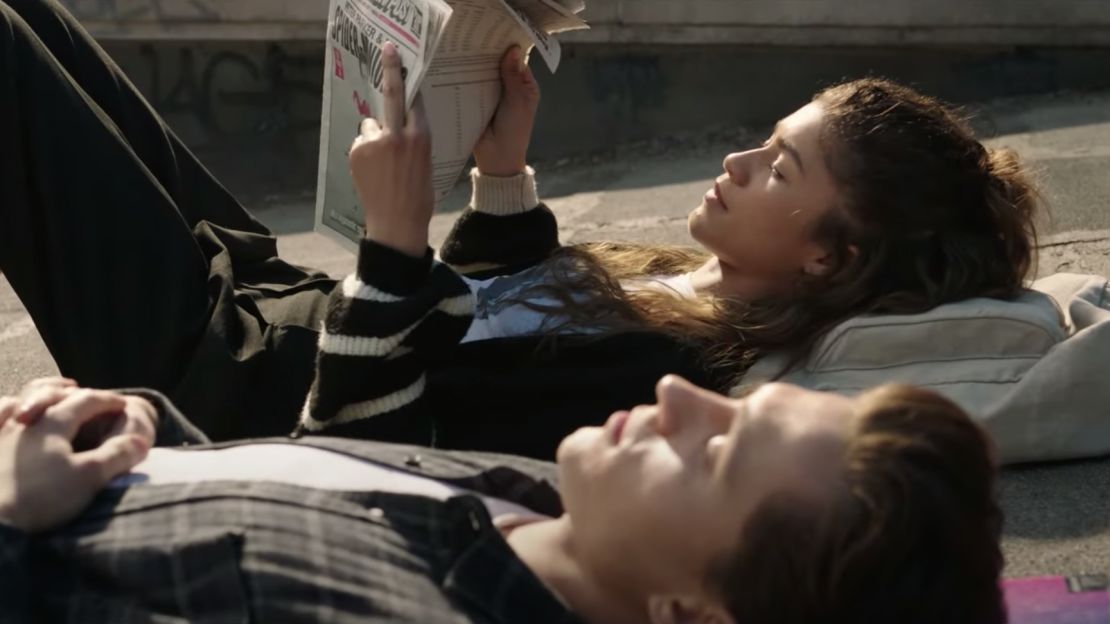When they post a big rating these days, TV executives are often fond of saying, “The pipes still work.” They mean that while the audience has scattered among hundreds of options, old-time broadcasters can deliver a level of mass reach that’s hard to equal anywhere else.
The same adage applies to movie theaters this weekend with the arrival of “Spider-Man: No Way Home,” a film that’s demonstrating it’s still possible to amass a giant opening weekend at the box office, even if such super-powered numbers have become rare, bordering on unheard-of amid the pandemic.
Indeed, initial box-office returns for the third “Spider-Man” movie have felt like a psychological balm for a movie industry cast into crisis mode about its future. Dramas and more serious movies were already migrating to streaming, but even titles designed as popcorn-selling crowd pleasers have struggled as theaters have sought to recover.
One blockbuster won’t be enough to turn back the clock or drive scary headlines about the latest Covid variant out of people’s minds. Yet seeing “Spider-Man: No Way Home” early at an industry screening – normally a more jaded assembly than an opening-night crowd – brought back some of the particular joys associated with watching movies in a communal setting.
At key moments, there were whoops, cheers and appreciative laughs – loud in places, more muted in others where the references surely played to a subsection of the audience. After attending screenings for months in sparsely populated theaters to allow for social distancing, the experience felt like a reminder of how certain kinds of movies benefit from being shared.
The audience reaction didn’t match “Avengers: Endgame” in its boisterousness, but it did bring to mind that moment early in the pandemic when video circulated of an audience going wild at its climactic sequence.

Last year the directors of the film, Joe and Anthony Russo, talked about how emotional that clip was, with the latter saying that while the business was changing, seeing movies with large groups “is always going to be unique, in the way watching something at home can’t be.”
Although there have been some successes during the pandemic, there’s a growing sense that the movie industry might never fully rebound to where it was in 2019. But something like “Spider-Man” nevertheless represents a reassuring feeling that the hunger for what theaters offer can’t be entirely replaced.
Back when one of the last major network hits, “The Big Bang Theory,” went off the air in 2019, series producer/co-creator Chuck Lorre suggested that those writing obituaries for the sitcom were doing so prematurely.
“I’ve been doing this long enough to know I’ve heard the bold statement that ‘This is it. This won’t happen again’ many times,” he told CNN. “And it does. So humility would suggest that making a blanket statement, that this is the end, is probably foolish.”
Hollywood can’t pivot on a dime, but the forecast for movies in theaters has become even more Darwinian, favoring a very select few that meet the criteria to qualify as an event. For every “Spider-Man” or “The Batman” there will be expensive failures, and as a consequence the gap between theatrical winners and those that must rely on home exhibition – and generally speaking, tighter budgets – appears destined to grow.
At this point, “Spider-Man’s” success looks like a welcome spike on a troubling EKG – a short-term jolt to the movie business and avid theater-goers, not an enduring rescue.
But for this weekend, anyway, as millions flock to the movies, it’s nice to see that the pipes still work. In that, “Spider-Man” has shot theaters a lifeline, even if their spider sense ought to be tingling about what lies ahead as they swing into the unknown.




